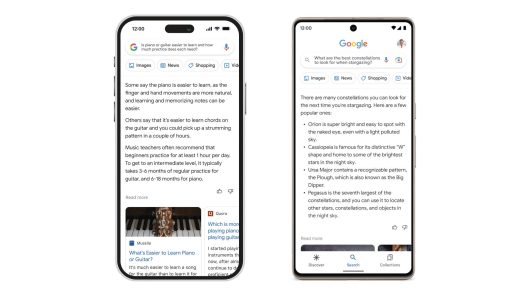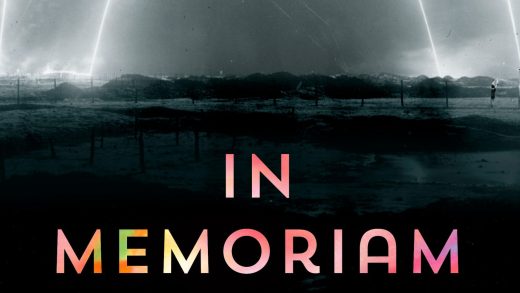In today’s edition of featured fiction—curated by our own Carolyn Quimby—we present an excerpt from Lynn Steger Strong’s novel Want.
Following on the heels of Hold Still, the novel won praise from Kirkus, which called it “a wise, unflinching, and compelling novel about womanhood,” and Vulture, which hailed it as “a defining novel of our age of left-behind families.”
It was hot already, wet and sticky—college; I was nine-teen; she was twenty; she’d driven from her school three hours away to spend the summer with me—and she shaved my head out on the roof of the row house I shared with two other girls and laughed as large chunks of hair fell down to the porch; the buzz of her hands on my neck was the closest that I’d come to joy in years. For weeks, we’d talked about it, a joke I made that she latched onto. I liked the thrill she seemed to get at the prospect: a sort of recklessness I’d receded from—mostly, then, I was locked up in my attic room—just as hers was amping up.
I didn’t think I’d care what I looked like after. I had images of waiflike women with large features staring back at me from pictures, pictures that I’d found online when we first discussed shaving my head. I must have cared if I searched this. I must have been invested in how it’d turn out in the end. These women were all barefaced as well as bareheaded: Sinéad O’Connor, cancer victims, Yael Stone. All of them wide-eyed toward the camera. All of them gaunt. Their features threatened from their faces, big and unprotected, unapologetic; it was the viewer, though, who seemed to need protecting then.
That my features were too small and my face already too wide and blunt was not something I’d considered. That I’d gained weight and what was, would always be, too soft had gotten softer was something I tried not to think about. But then the hair had fallen to the porch and we were sweeping it into the trash and there was nothing to be done but to wear skullcaps in the wet summer heat and try to forget it was possible that I was making passers-by afraid.
I didn’t mind because she loved me like that. She loved me most when, at night, she’d rub my back as I cried about whatever small thing made me cry that day and she could tell me my crying was allowed and important, that she’d be there no matter what. She reached her hands over the nubs of my head, strong and sure and doting, she talked and talked, until I fell asleep.
Men sought her out, always. I was an obstacle they had to overcome. They pretended to care about what I was reading so she would see that they were kind and thoughtful. They would half listen to the things I said as they turned their chairs closer to her. We both brought books to the same bar every night—it was the summer I read all of Woolf and Faulkner—the presence of the absence, circling, circling but not ever touching, knowing that there was no such thing as saying just exactly what one wanted, no such thing as connecting wholly with another human, but still trying anyway. She sometimes picked up whatever I had finished so we could talk about them afterward. The bar was Irish. They served colcannon and champ, boxty, boiled bacon and cabbage, and we’d split a big, hot meal after not eating the whole day. It was half old men, locals, and half undergrads who wanted to declare themselves as different from the kids who went to the fancy burger place or the oyster bar down the street.
I read and she held the books close to her, unopened, flirting with the bartender or pretending not to notice when men looked. I nodded and sometimes let myself pretend these men were interested in my answers to their questions. When they circled their chairs to face only her, I went back to my book. It was the contrast that never failed to shock me. We felt so much aligned during the day, at home, alone, walking down the street. We were the same age, from the same place, equally unrelenting, depressive, bookish. But the shape of her face, the way clothes hung on her body, her perfect skin, the largeness of her eyes: we were such completely separate things.
She came home with me almost always. When we made fun of these men later, the experience of their desperate want felt shared. It was mine insofar as I had gotten what they wanted. One of them called me a dyke bitch when I asked her if we could please go home after he offered to pay for her fifth beer. This one was attractive. Smart. It was 2:00 am. I’d read an entire novel in the time we’d been there. Probably she would have slept with him if I’d not made my face so sad when I’d asked if we could leave. If she’d not also heard what he’d said.
During the day, I could forget about this. My roommates both went back to their childhood homes and we had the whole place to ourselves for the last month. We’d get up early and walk over the MIT bridge into Boston. We wore T-shirts and sports bras, cotton shorts and flip-flops, just like we’d done all those years at home. There was a tree outside the house where I lived and we would pick mulberries to eat from our hands and pockets on our walks. We’d stop in Central Square for coffee. She’d get chocolate cake but never finish it. I’d get a quiche and then she’d pass me what was left of her cake. We drank cup after cup of coffee. Still there was the talking. Talking, talking. About the books that we were reading, about what we wanted, needed, thought then that we couldn’t live without. I imagine now that it sounded and was shaped like what lots of young girls say they want and need when they’re nineteen and twenty. She wanted always to be loved and wanted. I wanted to be anything but whatever I was then. We loitered on the basement floors of used bookstores when it got too hot and we were tired. We got ice cream on Newbury Street and watched the tourists yelling, pointing in the duck boats on the Charles. We went to see movies; sometimes we snuck piles of food into our bags and stayed for hours, leaving one theater and sneaking into another. We’d see three or four films in six hours, stumbling out bleary and exhausted, the whole day having passed. I’d forget then, on the best days, that we were separate. Our words and wants and limbs would overlap. A man came up to our table at the coffee shop and dropped her a note, a pencil-sketched picture of her, I just couldn’t stop looking, he wrote at the bottom, already gone. Three of the baristas asked her out. I’d gained weight, stopped running for long stretches of time, and none of my shorts fit. My head was still bare and sometimes people gawked, but mostly I could disappear inside reading and talking. I bought more cotton shorts and wore old, large sweat shirts with the sleeves rolled up.
I was paying for her. My parents paid. She was staying in my attic apartment until she found a place, except she never looked. She was meant to get a job but never did. We put our whole lives on the card I had, had always had, for living. She alluded sometimes to feeling bad about this, but I demurred and didn’t let her talk too much about it. I didn’t want to spend long stretches of time without her. The rent had to be paid regardless and she ate so little. At night, her drinks were always bought by men.
One night, we went out to dinner. I wore a green cotton strapless dress I’d had since high school that had seemed to fit in the dark apartment but did not. She wore a low-cut black silk tank and perfect pants. The busboy kept coming over to refill our waters. Even when I stopped drinking mine, to get him to stop, he found reasons, changing out our silverware, refolding her napkin when it fell off her lap. He was boorishly attractive, younger than us, broad-shouldered, dark hair, shockingly blue eyes. She pretended not to notice through the first course. But we spent every day together, every night and morning. We talked about the same things over and over. I saw her turn her body toward him. She let him look at her. When he finally spoke, his accent was South Boston born and bred. You want more bread?
He left her a note, scratchy handwriting, a pen borrowed from a waiter; he’d written his number and the word “drink” with a question mark. I was still hoping we could laugh about this later. I was still thinking if I ignored him she would too. It’ll be fun, she said. We’ll go together. I didn’t want to. The energy was different between them than with most of the others. I could feel her wanting him to look at her, instead of acquiescing to it; I already understood I wouldn’t be able to convince her not to go. I wanted to scream and cry and wrap both of us inside the tablecloth until we were home and no one could touch us with their eyes or food or drinks or pens or hands. I want to go home, I said. Fine, she said. Her voice was hard.
I left and she didn’t. He dropped her off at my apartment the next day before noon. For weeks, she disappeared for days to be with him. I always knew where she was at night if she wasn’t across from me in bed.
She made fun of him in front of me. His sheets, she said. Her face scrunched up. I’m not sure they’ve ever been washed.
She was affecting this not caring. She tried to convince me I still mattered most of all. He’d dropped out of high school, lived with a cousin in South Boston, no real plans. She said when he fucked her he got angry just before he came and she liked the way his ass felt in her hands, taut and small compared to the rest of him. Twice, she showed me bruises he’d left across her body. I ran my hands slowly over them, one on the shoulder, another just below her chin, her skin so white and poreless, even in summer, the purple splotches popping, angry, with smaller patches of brown and blue. Later, I reached slowly up into myself with that same hand and let myself remember her pulse thrumming; I thought about their fucking, imagined the feel of that hard, angry ass overtop of me.
He stopped returning her calls after a month. She pretended she didn’t care. Then she told me she thought she might be pregnant. She refused to take a test but left a message on his phone. I went to the CVS and bought the test for her, but she refused to take it. Instead, she curled up next to me in my bed and cried, her phone clutched to her. When he still hadn’t called her back a week later and she was still calling, warning, saying she’d take care of it herself except she didn’t have the money now (I knew this wasn’t true and had also offered to put an abortion on my parents’ credit card) I found a used tampon in the bathroom under two sheets of paper from the day’s news. We were the only people in the house.
Excerpted from Want by Lynn Steger Strong. Published by Henry Holt and Company, July 7th 2020. Copyright © 2020 by Lynn Steger Strong. All rights reserved.
Bonus Links from Our Archive:
—Shells: Picking Apart Pain and Womanhood
—On Sheila Heti and (Not) Motherhood
—The Mourners
The post ‘Want’: Featured Fiction from Lynn Steger Strong appeared first on The Millions.














